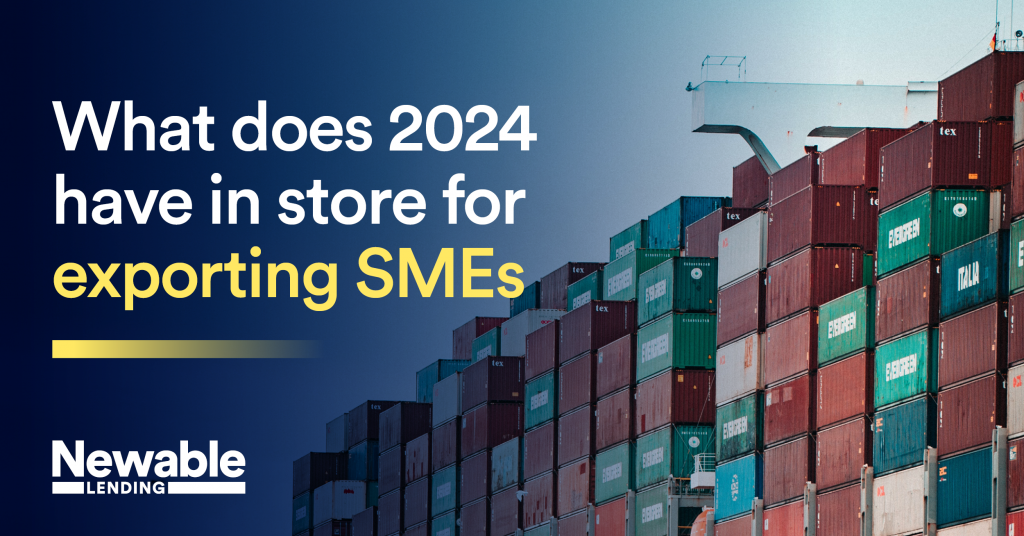What does 2024 have in store for exporting SMEs? Click here to find out:
What does 2024 have in store for exporting SMEs?
About Newable
For over 4 decades, Newable has been supporting thousands of businesses every year through the provision of Money, Advice and Workspace. An employee-owned business with a commitment to creating positive impact in all that we do, our team are on hand to help your business today.
Newable’s Export Finance is a UK Export Finance supported product that gives exporting SMEs flexible working capital to help them capture opportunities and respond quickly to challenges.
We provide working capital finance facilities of up to £300k for exporters to help them win contracts, fulfil orders and support growth.
Find out how we can help you and your business navigate the challenges of exporting.
